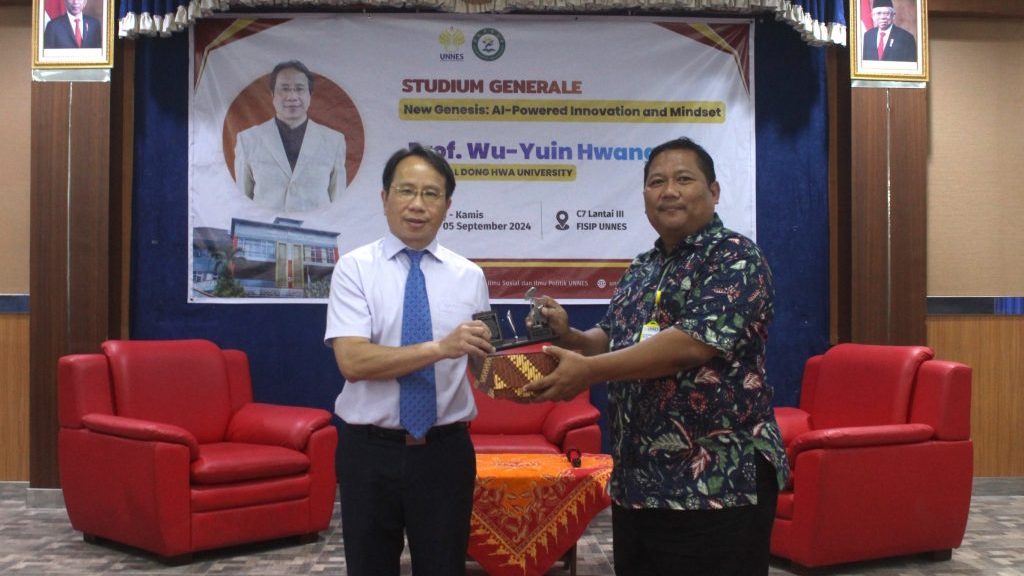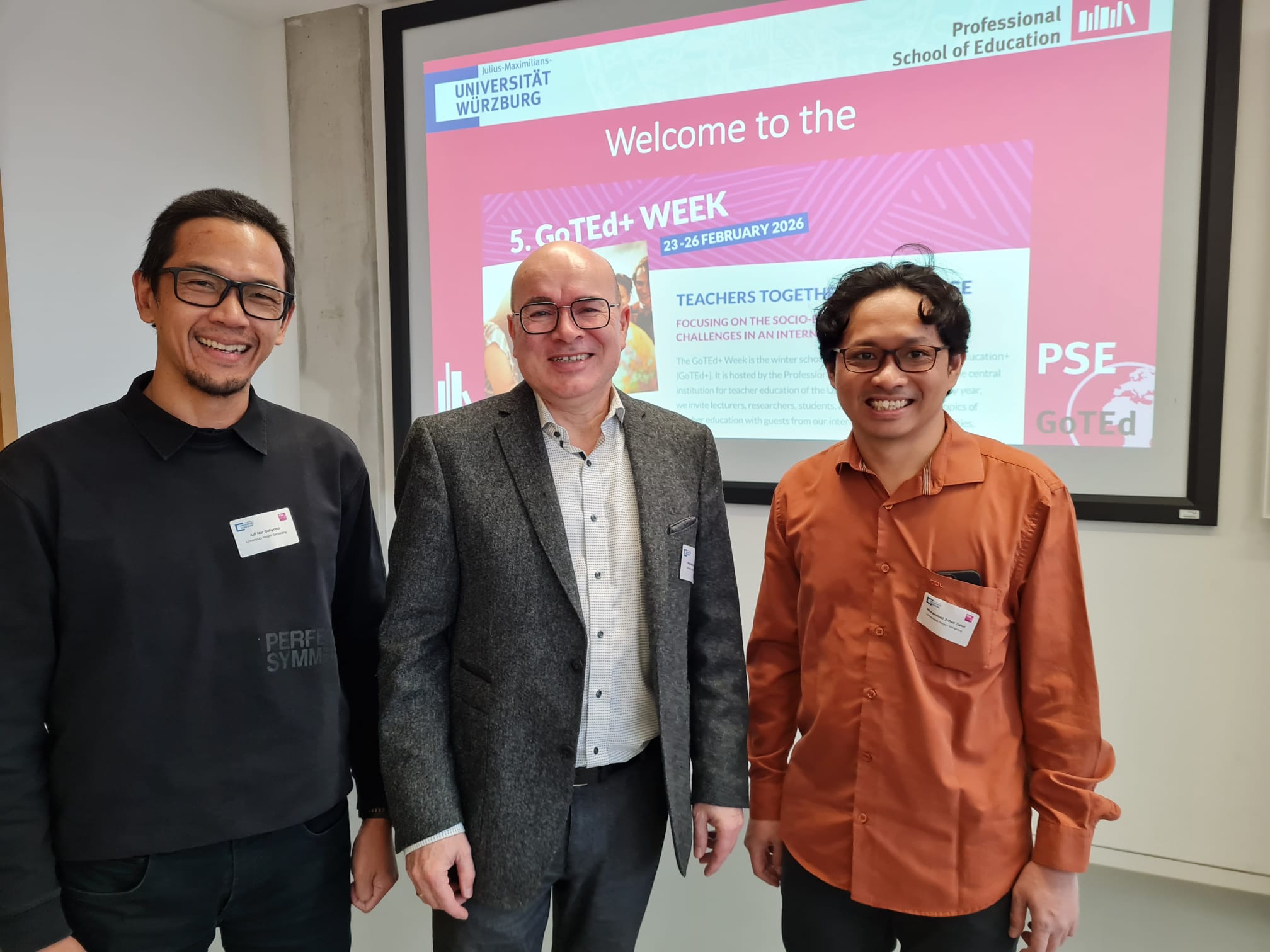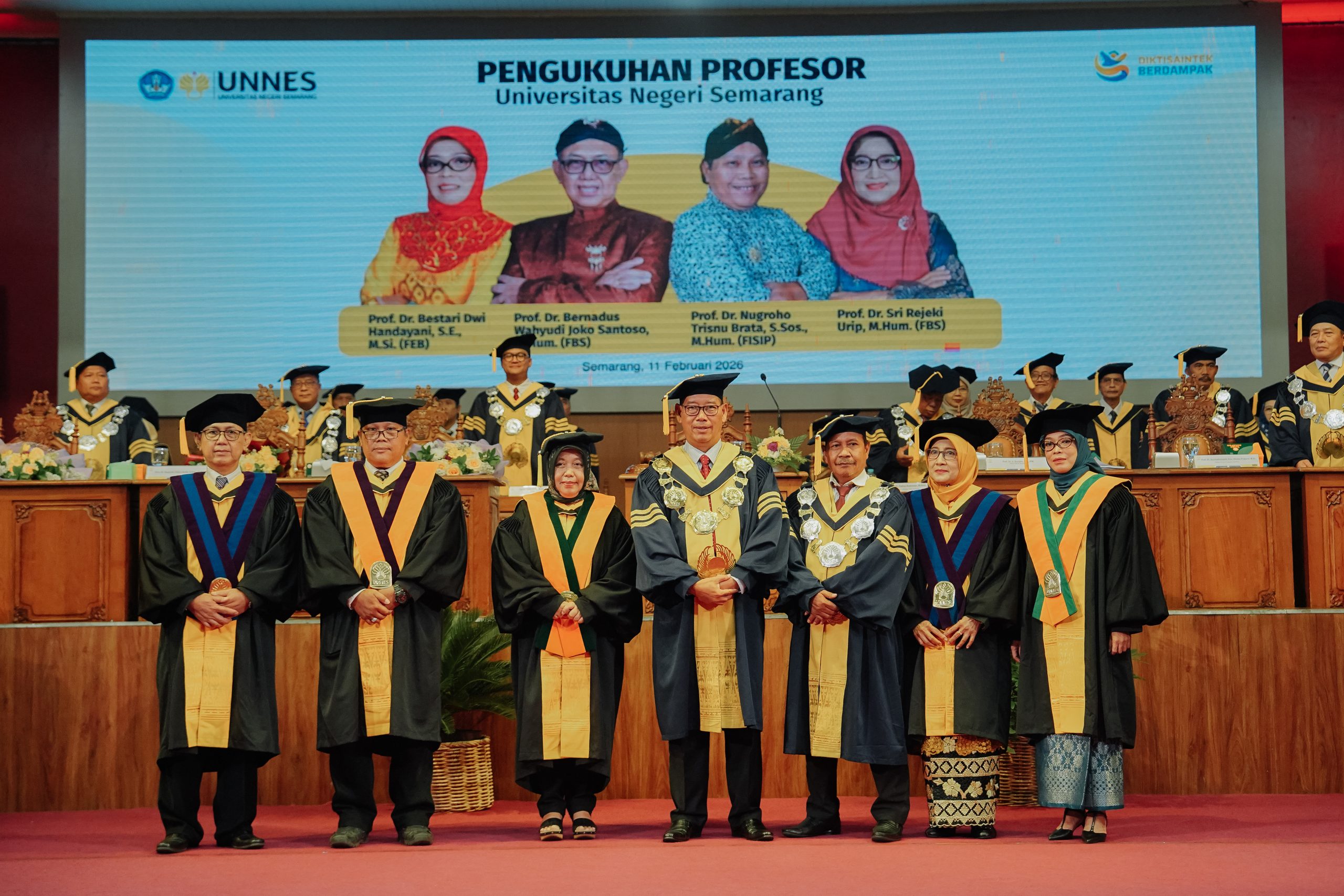The rapid development of technology today compels the education world to continually adapt in utilizing technology. One of these adaptations is the use of artificial intelligence (AI) which can facilitate the teaching and learning process. However, the current use of AI also requires a balanced academic responsibility in its management.
In response to this, the Pancasila and Civics Education Study Program (PPKn) at the Faculty of Social and Political Sciences (FISIP) of Universitas Negeri Semarang (UNNES) is organizing a General Stadium event with the theme “AI-Powered Innovation and Mindset” on Wednesday, September 4, 2024, at the FISIP UNNES Building. This event will feature Prof. Wu Yuin Hwang, Dean of the Faculty of Science and Technology from National Dong Hwa University, Taiwan, as the main speaker.
In his address, the Dean of the Faculty of Social and Political Sciences at UNNES, Dr. Arif Purnomo, S.Pd., S.S., M.Pd., welcomes Prof. Hwang and hopes that this collaboration will not only be limited to the General Stadium, but also extend to research and service across institutions.
During his presentation, Prof. Hwang explained the development of artificial intelligence through three stages. The first stage involves AI as a supporting tool for learning, such as the use of ChatGPT by students to assist with coursework. In this stage, AI simply conveys information from the database, while users receive it without further examination.
The second stage, AI becomes a collaborative learning partner. For example, AI can be trained to teach English. Although initially the results may not be optimal, over time, AI will continue to improve its abilities based on user feedback, allowing both AI and humans to learn and adapt together.
In the final stage, AI becomes a part of human thought. In the future, it may be possible for the human brain to function even after the physical body is gone, by storing thoughts in the form of programs or databases. This would enable communication with future generations, as if the owner of those thoughts were still alive.
This activity is expected to broaden students’ understanding of AI potential and how this technology can be responsibly integrated into the world of education.




